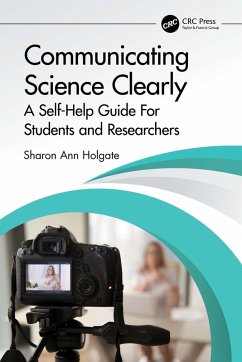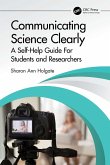It provides practical guidance on how to best communicate science in a range of different settings. This book facilitates clear and concise communication in both academic scenarios and the workplace. It covers settings ranging from job interviews, through conference presentations, to explaining your research to the general public.
It is illustrated with first-hand experiences, top tips, and "dos and don'ts" to demonstrate best practices. It will also be a valuable guide for established academics who would like a refresher or a guide to new avenues of science communication, such as podcasts.
Key Features:
- Written by an award-winning professional science journalist and broadcaster with 25 years' experience, including writing for national newspapers, devising and presenting programmes for BBC Radio 4, and being interviewed on radio, TV, video, and podcasts
- Covers science communication in a broad range of settings including peer-to-peer, to your manager, at job interviews, and during media appearances
- Includes advice from a range of experts who communicate professionally, including a radio producer, a TV presenter, actors and entertainers, and scientists
Additional video material to accompany this book can be found here: https://www.youtube.com/playlist?list=PLLUWyRwmgFlW7_NrNupeuiJ86OxIWHZ6I.
Dieser Download kann aus rechtlichen Gründen nur mit Rechnungsadresse in A, B, BG, CY, CZ, D, DK, EW, E, FIN, F, GR, HR, H, IRL, I, LT, L, LR, M, NL, PL, P, R, S, SLO, SK ausgeliefert werden.
- Reviewed by Nancy Longnecker; Professor of Science Communication; University of Otago, New Zealand
In an era of widespread misinformation and troubling scepticism about topics such as vaccines and climate change, the need to be able to communicate about science to the public and the media has never been greater [...] And yet science communication is still rarely covered in degree programmes, leaving otherwise well-qualified scientists at a loss to know how to safely and effectively enter the potential minefield of public engagement and media work.
This is a book that I would thoroughly recommend for scientists at any career stage who want to communicate in a more impactful and memorable way or simply want to feel better prepared and less exposed when it comes to the increasingly important work of public engagement in science.'
- Dr. Stephen Keevil, Professor of Medical Physics at King's College London and Head of Medical Physics at Guy's and St Thomas' NHS Foundation Trust, February 2025.









